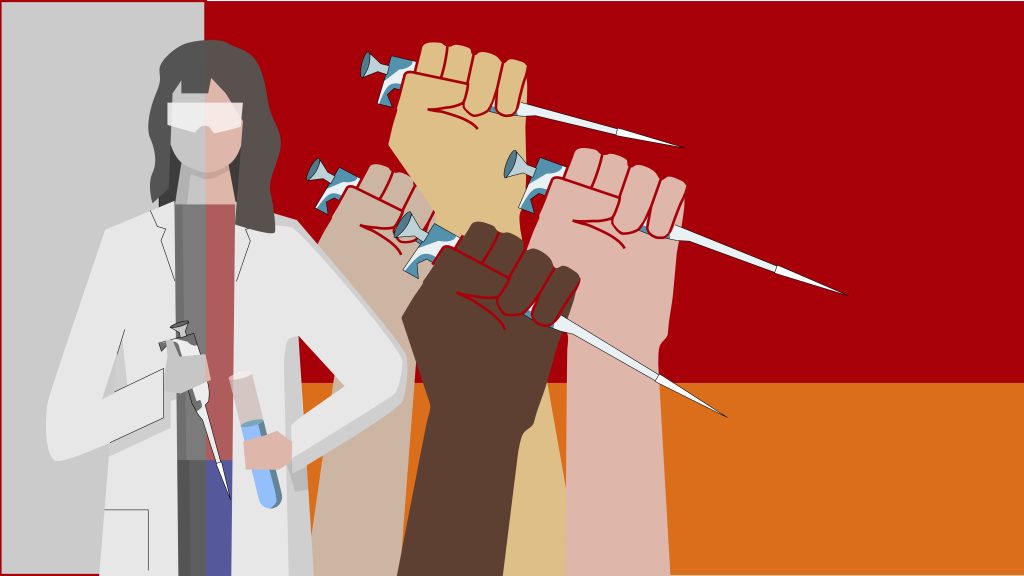
On November 15th, 2023, postdoctoral fellows at Weill Cornell Medicine voted to unionize by a 99% majority of 328 to 4. Forming the union gives postdocs the legal right to engage in collective bargaining with the institution. Postdocs aim to use this right to improve workplace conditions through increased salary minimums, improved housing and childcare options, and guaranteed job security. Currently, the newly elected bargaining committee is collecting surveys to shape the union’s priorities. They will then begin to negotiate their first collective bargaining agreement with the institution which will outline new employment rights and benefits.
Informal organization began in September 2022 among a small group of postdocs involved with the Postdoctoral Association (PDA) at Weill Cornell. In the past, postdocs have worked through the PDA to raise concerns with the Office of Postdoctoral Affairs. However, the institution is not required to bargain over issues brought forth by the PDA, which some postdocs believe has caused recent negotiations to proceed slowly.
“We felt we were voiceless,” said Dr. Juan Rodríguez-Alcázar, a postdoc who helped form the union organizing committee. “With the union, the institution is legally obligated to negotiate the terms of our contract.”
Over a year ago, the newly formed organizing committee began having what would become hundreds of individual conversations with other Weill Cornell postdocs to gauge interest in unionization and educate their peers on what the process would entail. They also began to assess the most important issues among postdocs for eventual bargaining. “Creating that network was the most difficult step,” said Dr. Rodríguez-Alcázar. “It was a very slow process, but it was necessary.”
The vote to unionize follows similar efforts by postdocs across the country. Unions at both Columbia University and the Icahn School of Medicine at Mount Sinai have offered guidance for the organizers at Weill Cornell. Following a successful authorization card campaign, the organizing committee notified the institution and registered with the United Auto Workers, a national union that represents more than 100,000 academic employees.
“As postdocs, the School often sees us as temporary, low-cost workers whose primary responsibility is to produce data and not as scientists with families and lives outside of the lab,” said Dr. Caitlin Williams, a Weill Cornell postdoc seated on the union’s bargaining committee. She emphasized that many of the issues the union hopes to address stem from the institution treating postdocs more as trainees than as full-fledged scientists.
Negotiating a higher institutional minimum salary will likely be a priority for the bargaining committee as it begins the process of drafting articles for a contract. Although Weill Cornell pays above the minimum established by the National Institute of Health, many postdocs find their wages to be insufficient to meet the cost of living in New York City. Unionized postdocs at Mount Sinai recently negotiated a collective bargaining agreement that established the highest minimum salaries for postdocs in the country. While postdocs can negotiate higher salaries with their supervisors on an individual basis, raising the institutional minimum salary would mean higher standards of compensation for the entire postdoctoral community.
Postdoc organizers active in the union also hope to improve housing and childcare options. Although Weill Cornell offers subsidized housing, many find that it is not affordable given the current salary minimum. Many parents find childcare options to be insufficient, particularly once children have reached schooling age and during school vacations. Weill Cornell guarantees postdocs only a minimum of 8 weeks of paid parental leave.
Organizers also aim to improve conditions for international postdocs, who must regularly fund their own travel in order to renew their visas. Other priorities include improving job security, lengthening contracts, and strengthening protections against harassment. The new union looks forward to the work ahead.
